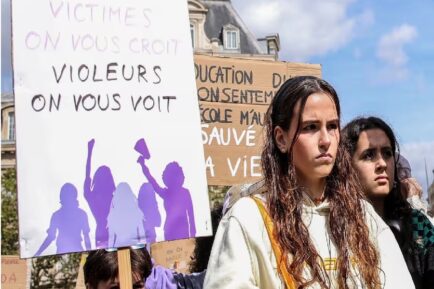One year after the Greek #metoo and the increasing allegations of sexual abuse through the use of images, the new program “PRESS: Prevention – Response – Support of young survivors of sexual (online) harassment and violence” is launched, with the aim of responding to the growing needs of supporting survivors of these forms of gender-based violence.
The project has a duration of two years (February 2022 – January 2024) and is implemented with Diotima Center as coordinator and the Department of Communication and Mass Media of NKUA and Genderhood as partners, in collaboration with the Greek Ombudsman and the Association of Social Workers of Greece (SKLE). It is carried out in the framework of the CERV Project Grants with EU funding.
A key pillar of the program is the operation of a pilot, holistic support center for women, young girls, and LGBTQI+ people (over 16 years old), who are at risk or experiencing sexual (online) harassment and violence.
The center will operate in Athens and will provide psychosocial support and legal/counseling assistance to survivors. At the same time, it will conduct group activities for young adults and teenagers (16-17 years old), with the aim of empowering and raising awareness.
Great weight will be given to actions to prevent sexual (online) harassment and violence. Trainings of professionals in the media will take place, helping to increase relevant complaints, mitigate victim blaming and promote a culture of consensus.
Given that raising awareness of society as a whole is an important tool for tackling sexual (online) harassment and violence, two digital information campaigns will be designed. In fact, one will be addressed to young people and will concern issues of consent, respect, and physical boundaries.
Lastly, the program includes:
- training seminars for professionals and students (social workers, teachers, lawyers, mental health professionals) to enhance their skills in supporting people who have experienced these forms of gender-based violence
- research actions: secondary research on sexual (online) harassment and violence, with proposals for measures and the development of a Guide of Good Practices focusing on consent
- advocacy actions: proposals for gender mainstreaming in the news, organization of a round table with the participation of experts and young people.





